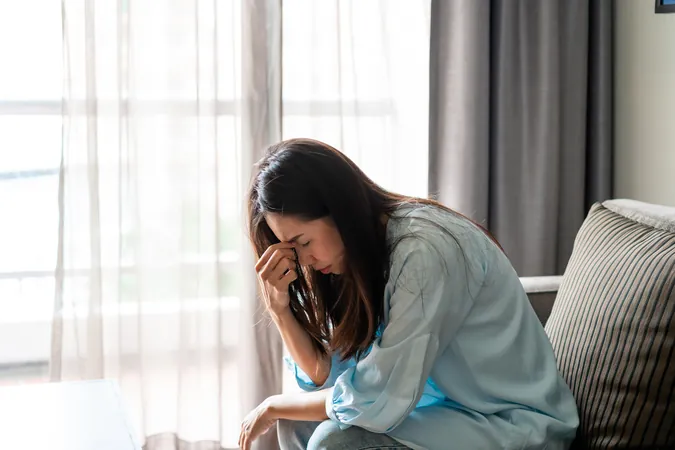
Employee Faces Backlash for Extending Medical Leave in Singapore: A Case of Misunderstanding or Mismanagement?
2025-01-12
Author: Sarah
SINGAPORE:
A Singaporean employee recently shared her distressing experience on Reddit after facing criticism from her boss for extending her medical leave to four days due to illness. The situation has sparked a discussion about workplace policies and employee rights, especially surrounding medical leaves.
In her post on the ‘Ask Singapore’ forum, the unnamed employee explained that her original medical leave was approved for two days. However, her condition worsened; she suffered from severe migraines that escalated along with a high fever, prompting her to seek an extension. To substantiate her claims, she sent her manager a visual proof of her elevated fever reading. Despite this, the director—an elderly woman who presides over the family-run business—dismissed her concerns and suggested she might be fabricating her condition.
In a rather confrontational message, the director mentioned that in her 30 years of experience running the business, she had never encountered employees extending medical leave in this manner. This comment raised eyebrows in the Reddit community, with many questioning the management's approach to employee wellness. The director further conveyed that the absence was putting a strain on her coworkers, implying that the employee's condition was a disruption to longstanding business operations.
The employee clarified that her medical leave usage did not breach any established allowances for the year. Given personal milestones approaching, including receiving her Build-To-Order (BTO) keys and her upcoming wedding, the anxiety from this work situation has been particularly burdensome for her.
This situation has led to extensive commentary from Reddit users, many empathizing with her plight. A considerable number advised her to consider seeking employment opportunities elsewhere, asserting that prioritizing her health and well-being should take precedence over an unfavorable workplace environment. A notable sentiment echoed in comments is that an employer’s priority should be the welfare of its personnel, and not adhering strictly to their operational convenience.
Some users shared their own harrowing experiences of dealing with toxic work cultures, emphasizing the importance of setting boundaries when it comes to personal health. Others, however, took a more sympathetic stance toward the employer, suggesting that experiences of employee abuse of sick leave could lead to deeper skepticism from management.
In Singapore, employees are entitled to medical leave benefits, which permit paid outpatient leave up to 14 days and 60 days for hospitalisation, conditional on length of service. The Ministry of Manpower stipulates clear guidelines regarding sick leave and notification procedures, indicating that employees holding a valid medical certificate should feel confident using their entitled leave without fear of reprimand.
As workplace dynamics continue to evolve, this incident has ignited a broader conversation about the need for sensitivity and clear communication in employer-employee relationships, particularly in understanding when health must take precedence over work obligations. What do you think? Are these changing workplace cultures shaping the future of employee rights?


 Brasil (PT)
Brasil (PT)
 Canada (EN)
Canada (EN)
 Chile (ES)
Chile (ES)
 Česko (CS)
Česko (CS)
 대한민국 (KO)
대한민국 (KO)
 España (ES)
España (ES)
 France (FR)
France (FR)
 Hong Kong (EN)
Hong Kong (EN)
 Italia (IT)
Italia (IT)
 日本 (JA)
日本 (JA)
 Magyarország (HU)
Magyarország (HU)
 Norge (NO)
Norge (NO)
 Polska (PL)
Polska (PL)
 Schweiz (DE)
Schweiz (DE)
 Singapore (EN)
Singapore (EN)
 Sverige (SV)
Sverige (SV)
 Suomi (FI)
Suomi (FI)
 Türkiye (TR)
Türkiye (TR)
 الإمارات العربية المتحدة (AR)
الإمارات العربية المتحدة (AR)